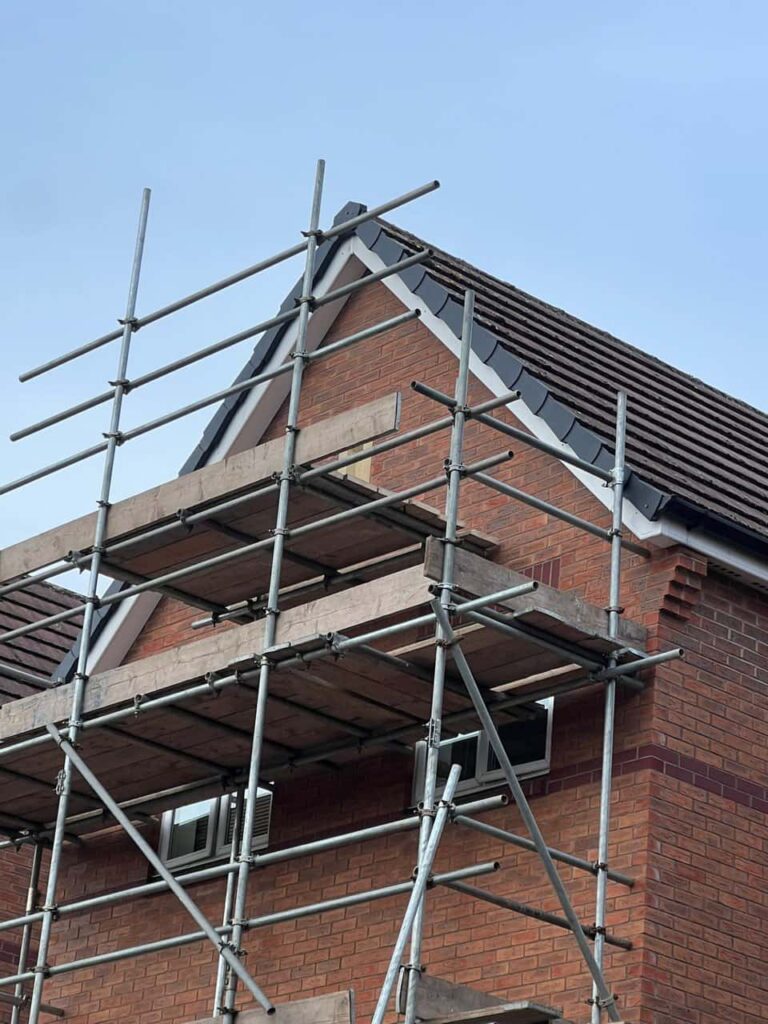When it comes to roof repairs, there are key differences between commercial and residential properties. Although both types of roofs are designed to protect the building and its contents, the nature of the structure, materials, and the purpose of the property can lead to variations in the repair process. Understanding these differences can help you make an informed decision when it comes to roof maintenance or repairs, whether you’re dealing with a home in Hurstpierpoint, West Sussex, or managing a commercial building.
In this blog post, we’ll explore the key differences between commercial and residential roof repairs, including the materials, complexity, and regulations involved.
1. Roof Design and Size
Larger and More Complex Roofs for Commercial Properties
One of the most significant differences between commercial and residential roofs is their size and design. Commercial roofs are typically much larger than residential roofs, which means repairs tend to be more complex and involve different techniques. Commercial properties often have flat or low-slope roofs, while residential homes usually feature pitched roofs.
Flat roofs are common in commercial buildings because they provide space for HVAC systems, solar panels, and other equipment. However, flat roofs can also be more prone to pooling water and drainage issues, which may require more frequent inspections and maintenance.
In contrast, residential roofs, often sloped, are designed to allow water to run off more easily, which can reduce the risk of water damage and require less maintenance. The materials used for both types of roofs also differ significantly due to the design requirements and intended purpose.
2. Roofing Materials
Different Materials for Different Applications
Commercial and residential roofs often require different materials. Residential roofing materials typically include asphalt shingles, tiles, or slates, which are lightweight and designed to handle the weight and slope of a traditional home. These materials are usually easier to install and repair, which makes residential roof repairs quicker and generally less expensive.
In contrast, commercial roofs commonly use materials like built-up roofing (BUR), modified bitumen, or EPDM (ethylene propylene diene monomer) rubber. These materials are designed for flat or low-slope roofs and are generally more durable and weather-resistant. However, these commercial roofing materials can also be more difficult to work with and require a higher level of expertise to repair.
If you’re managing a commercial property, it’s important to hire a roofing contractor with experience in working with these materials. On the other hand, a residential roofing expert would be more adept at handling repairs for pitched roofs with materials like tiles or slates.
3. Safety and Accessibility
Different Safety Standards and Considerations
Given the larger size and flat design of commercial roofs, accessing them for repairs can pose a greater safety risk. Commercial roof repairs often require specialised equipment, such as scaffolding or fall protection systems, to ensure workers are safe while performing repairs. The scope of work may also involve more extensive safety protocols to protect both the workers and the building’s occupants.
Residential roofs, while still requiring safety precautions, generally pose fewer risks due to their smaller size and steeper pitch. Residential roof repairs are typically more straightforward, with fewer access concerns. However, proper safety measures such as harnesses and ladders are still essential, particularly for homes with multiple storeys.
4. Duration and Cost of Repairs
Longer and More Expensive Repairs for Commercial Roofs
Due to their size and complexity, commercial roof repairs tend to take longer and be more costly than residential repairs. Commercial buildings often require more labour, equipment, and materials, which contributes to the higher cost of repairs. Additionally, commercial roofs may need to be repaired in stages to minimise disruption to the building’s operations, such as shutting down parts of the building or ensuring the safety of the occupants during the repairs.
Residential roof repairs, by contrast, are typically faster and less expensive. The smaller size and simpler design of residential roofs mean that the repairs can often be completed within a shorter timeframe, leading to reduced costs.
5. Regulations and Compliance
Stricter Regulations for Commercial Properties
Commercial properties are subject to stricter regulations and building codes than residential properties. These regulations govern various aspects of the building, including its roof, to ensure it meets safety, environmental, and energy efficiency standards. When conducting roof repairs on a commercial property, contractors must adhere to these codes, which can make the repair process more detailed and time-consuming.
Residential roof repairs are typically governed by less stringent regulations, although homeowners must still ensure that repairs comply with local building codes. In some cases, particularly with extensive repairs or replacements, a homeowner may need to obtain permits, but the process is generally less complicated than for commercial properties.
6. Maintenance Needs
More Frequent Maintenance for Commercial Roofs
Commercial roofs typically require more regular maintenance than residential roofs. This is due to the larger size, flat design, and greater exposure to environmental elements, such as air conditioning units, debris, and foot traffic. Regular inspections are necessary to check for issues such as pooling water, drainage problems, and signs of wear on commercial roofing materials.
For residential homes, the maintenance needs are generally less frequent, though it’s still important to schedule regular inspections to ensure the roof remains in good condition. Residential roofs may need to be cleaned periodically, particularly if they have trees nearby that shed leaves or branches onto the roof.
Conclusion: The Right Expertise for the Job
While both commercial and residential roof repairs aim to address similar problems, such as leaks, damaged materials, or general wear and tear, the scope of the work and the materials involved differ significantly. Commercial roof repairs are generally larger in scale, require different materials and techniques, and are subject to stricter regulations. Residential roof repairs, on the other hand, are typically quicker, less expensive, and involve more familiar roofing materials.
If you’re in Hurstpierpoint, West Sussex, and need roofing repairs for either your home or commercial property, it’s essential to work with a professional roofing contractor who has experience in your specific type of roof. At Hurstpierpoint Roofing Repairs, our skilled team is equipped to handle both residential and commercial roof repairs with the expertise needed to deliver top-quality results. Contact us today to discuss your roofing needs and schedule an inspection.
Call us on: 01273 071 192
Click here to find out more about Hurstpierpoint Roofing Repairs
Click here to complete our contact form and see how we can help with your roofing needs.

